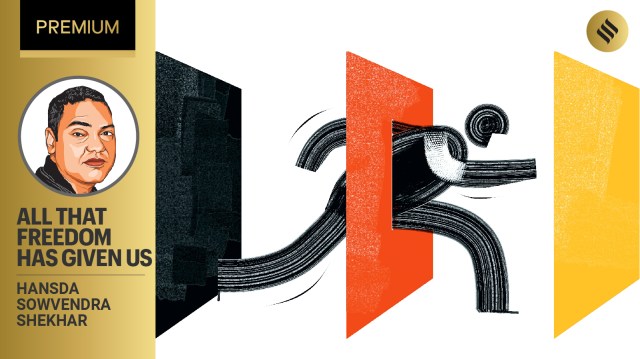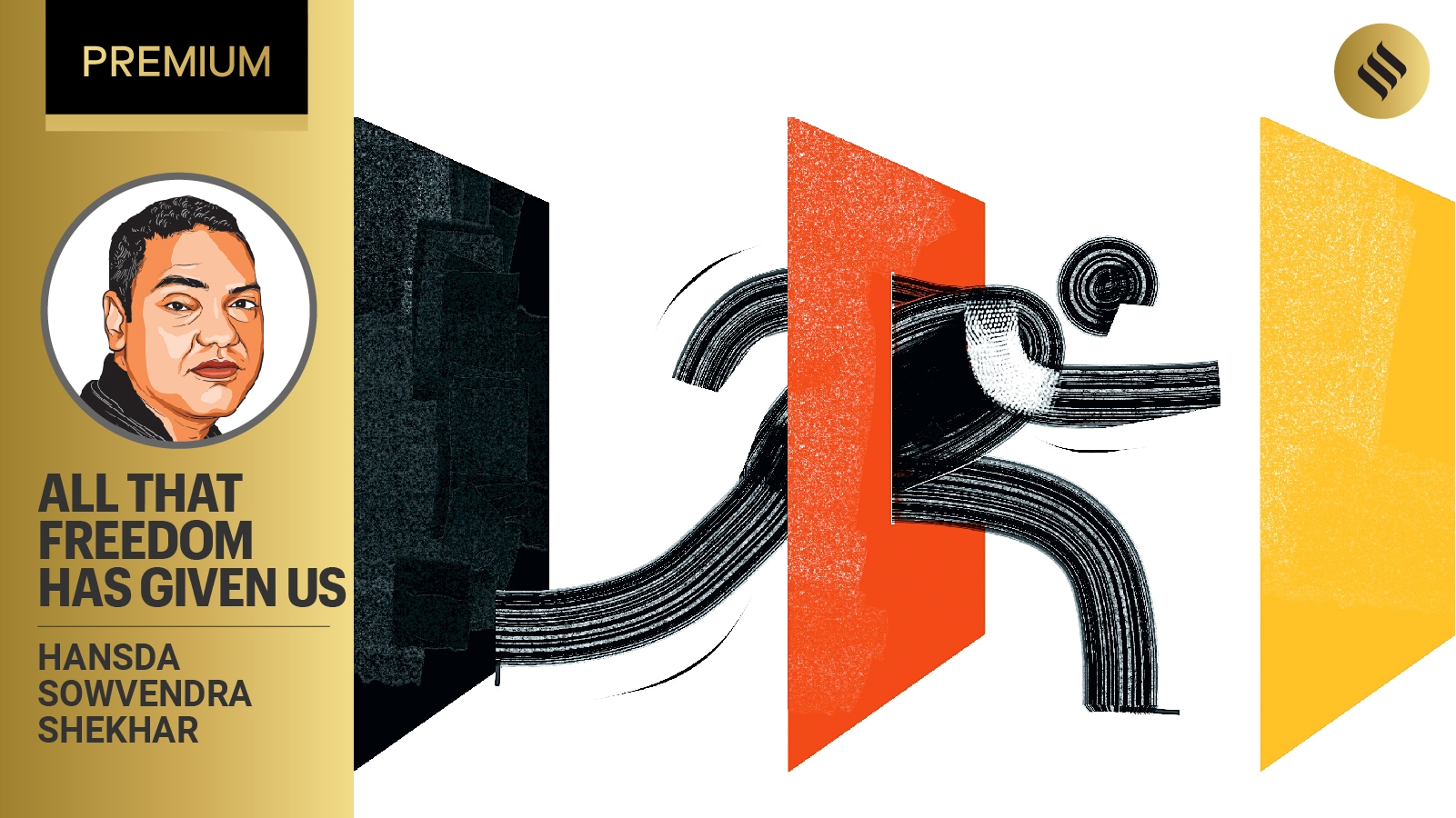
What independence could I talk about? I was born in a free country in the 1980s. My country, my motherland, my India, gained her independence in 1947, over three decades before I came into this world. By the time I was born, Independence had translated into freedom — our Constitution had shaped our rights and entitlements; our circumstances of birth had chalked out our obligations.
Even before I could figure out what freedom might feel like, liberalisation taught my generation to dream new dreams.
I reaped the benefits of all of these. I did not have to go through the grind my parents did. No walking for miles for me to get to school or relying on an old bicycle for distances beyond. There was always the school bus, once an aspiration for them. They had no one to turn to for career advice. I had Employment News and Pratiyogita Darpan bought assiduously for me by my parents who read it with the same deep intent that they urged upon me.
As a beneficiary of the affirmative action outlined in our Constitution, I found education — certainly of a far superior kind than the one many in my community may have received — and, finally, I found myself recruited for a job which, in the eyes of the fairly judgemental middle class of this nation, is relatively respectable. Does that sound like luck? Perhaps, it is. When you are among a small fraction of your community — a people with a history of migration and displacement — to have had the privileges that I did, you learn to count your blessings. You learn to cloak hope for the future with humility, and a touch of anxiety. Is this a dream? Have I done enough to achieve this? Will this last?
It is believed that one appreciates the value of something only when that is denied to them. Freedom, the sort our ancestors attained at midnight, has, to the best of my memory, never been denied to me. Perhaps I will never be able to rejoice and cherish Independence the way our forefathers did, even though holding up this Independence as a talisman as we fumble our way into the future is in the hands of my generation and the generations to come. I can only bow in gratitude to our forefathers for freeing us from the shackles of colonialism, for enabling us to live and breathe in a free nation.
Yet, our generation finds itself in the shackles of a different kind of servitude, one that barely manifests signs of overt violence. It comes wrapped in what we are taught to believe is ambition but what, in reality, is a compulsion to excel. In a country of a billion plus, with so few job opportunities, what do you do but lull yourself into believing that striving can get you greater glory? At the least, it can only be for the better. For you and your family. If you dream king-size or believe in a higher purpose, you tell yourself, it can be for the good of the nation, too.
Anxiety is built into these shackles. It announces its presence through our incessant obsession with the phone, the non-stop onslaught of WhatsApp notifications. It is there in the pressure of targets and ELAs (expected levels of achievement), in shifting goalposts and the frenzied desire to upskill or whatever new jargon that has been made fashionable by peddlers of dreams. We tell ourselves that the crushing deadlines and energy-sapping penalties are par for the course. After all, aren’t all these markers of an independent nation whose time has come to lead the world? A leader among high fliers. A decision maker among doers.
The pacifist in me assures me that there is nothing unusual about the grind. It is what progress looks like. That issues arise when ground realities are ignored — lack of infrastructure and manpower, the inevitable presence of corruption and whataboutery. These are the kind of things that people like me skip with practised nonchalance — talks of political interference, lack of support systems, all the things that can and do hold people back. We saw it recently with a woman wrestler whose gritty fight against the system over alleged sexual harassment has all but exhausted her. We see it in the rape and murder of a woman doctor at a government-run medical college and hospital in Kolkata, where the administration first tried to pass off the incident as death by suicide. Power without accountability is a terrible thing, its interference mounts ranks from subtle, innocuous demands to forthright gaslighting to a complete lack of empathy.
Can we live down these shackles in our lifetime? Break free like those who gave us what we take for granted, I wonder. I am not sure what the future holds. I know the road ahead will not be easy but I have also inherited hope. The belief that things will get better. That they have to. And then there’s gratitude, an overwhelming thankfulness for all that we have. For all that freedom has given us.
Shekhar is a writer and translator



